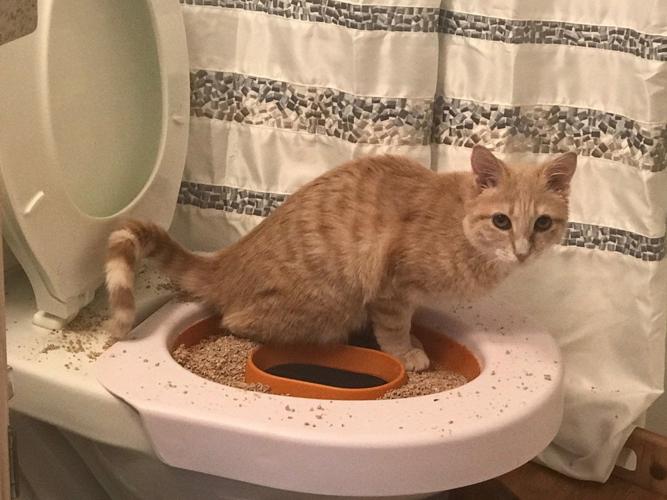Why You Should Never Flush Cat Poop Down Your Toilet - Important Facts
Why You Should Never Flush Cat Poop Down Your Toilet - Important Facts
Blog Article
The content which follows involving Don’t flush cat feces down the toilet is truly engaging. You should read it.

Intro
As feline owners, it's essential to bear in mind exactly how we deal with our feline friends' waste. While it may seem convenient to flush pet cat poop down the bathroom, this practice can have destructive repercussions for both the atmosphere and human wellness.
Alternatives to Flushing
Fortunately, there are more secure and much more liable methods to deal with pet cat poop. Take into consideration the complying with alternatives:
1. Scoop and Dispose in Trash
One of the most usual technique of dealing with pet cat poop is to scoop it into an eco-friendly bag and throw it in the garbage. Make sure to use a specialized litter scoop and take care of the waste immediately.
2. Usage Biodegradable Litter
Choose eco-friendly cat trash made from products such as corn or wheat. These litters are eco-friendly and can be safely taken care of in the trash.
3. Hide in the Yard
If you have a backyard, consider hiding pet cat waste in a designated location far from vegetable gardens and water resources. Be sure to dig deep sufficient to stop contamination of groundwater.
4. Install a Pet Waste Disposal System
Purchase a pet dog garbage disposal system specifically created for pet cat waste. These systems use enzymes to break down the waste, decreasing smell and environmental impact.
Health and wellness Risks
Along with ecological concerns, flushing cat waste can likewise present wellness risks to humans. Feline feces might have Toxoplasma gondii, a parasite that can cause toxoplasmosis-- a potentially serious health problem, especially for expectant females and people with damaged body immune systems.
Ecological Impact
Flushing cat poop introduces damaging virus and bloodsuckers right into the water, posturing a significant risk to aquatic ecosystems. These impurities can adversely impact aquatic life and concession water quality.
Final thought
Liable animal possession expands beyond offering food and sanctuary-- it additionally entails proper waste administration. By avoiding purging cat poop down the bathroom and selecting different disposal methods, we can reduce our ecological impact and protect human health.
Why Can’t I Flush Cat Poop?
It Spreads a Parasite
Cats are frequently infected with a parasite called toxoplasma gondii. The parasite causes an infection called toxoplasmosis. It is usually harmless to cats. The parasite only uses cat poop as a host for its eggs. Otherwise, the cat’s immune system usually keeps the infection at low enough levels to maintain its own health. But it does not stop the develop of eggs. These eggs are tiny and surprisingly tough. They may survive for a year before they begin to grow. But that’s the problem.
Our wastewater system is not designed to deal with toxoplasmosis eggs. Instead, most eggs will flush from your toilet into sewers and wastewater management plants. After the sewage is treated for many other harmful things in it, it is typically released into local rivers, lakes, or oceans. Here, the toxoplasmosis eggs can find new hosts, including starfish, crabs, otters, and many other wildlife. For many, this is a significant risk to their health. Toxoplasmosis can also end up infecting water sources that are important for agriculture, which means our deer, pigs, and sheep can get infected too.
Is There Risk to Humans?
There can be a risk to human life from flushing cat poop down the toilet. If you do so, the parasites from your cat’s poop can end up in shellfish, game animals, or livestock. If this meat is then served raw or undercooked, the people who eat it can get sick.
In fact, according to the CDC, 40 million people in the United States are infected with toxoplasma gondii. They get it from exposure to infected seafood, or from some kind of cat poop contamination, like drinking from a stream that is contaminated or touching anything that has come into contact with cat poop. That includes just cleaning a cat litter box.
Most people who get infected with these parasites will not develop any symptoms. However, for pregnant women or for those with compromised immune systems, the parasite can cause severe health problems.
How to Handle Cat Poop
The best way to handle cat poop is actually to clean the box more often. The eggs that the parasite sheds will not become active until one to five days after the cat poops. That means that if you clean daily, you’re much less likely to come into direct contact with infectious eggs.
That said, always dispose of cat poop in the garbage and not down the toilet. Wash your hands before and after you clean the litter box, and bring the bag of poop right outside to your garbage bins.
https://trenchlesssolutionsusa.com/why-cant-i-flush-cat-poop/

We had been brought to that article about Don’t flush cat feces down the toilet through someone on our other web address. Sharing is nice. One never knows, you may be doing someone a favor. Many thanks for your time invested reading it.
Further Details Report this page